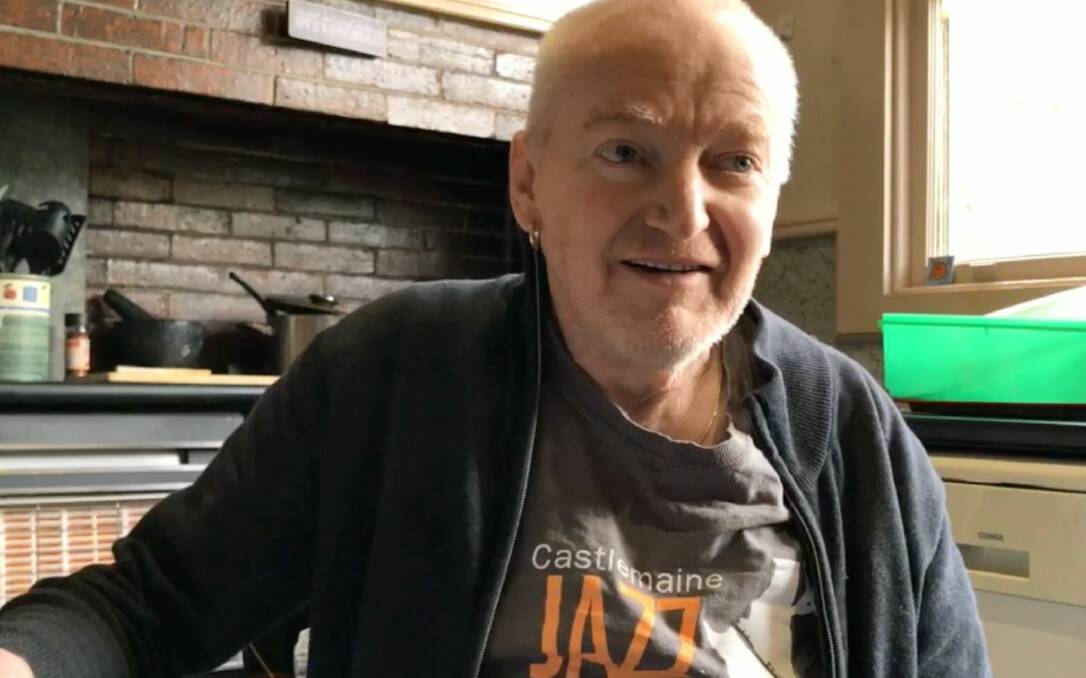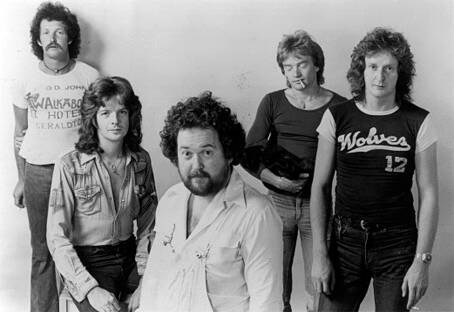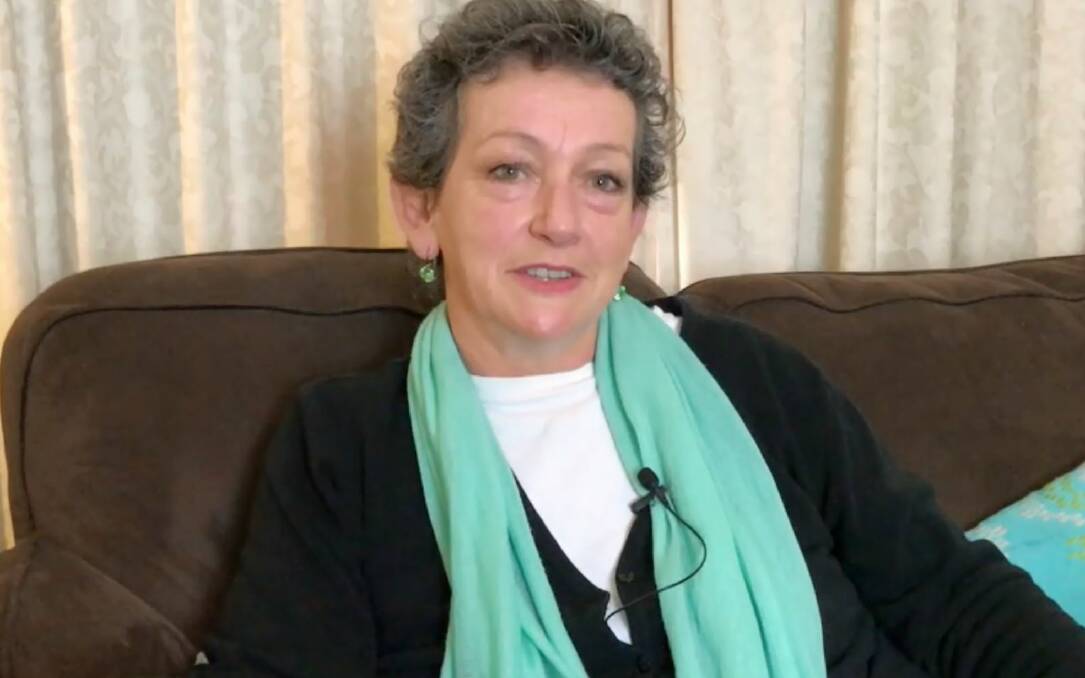As part of Dementia Awareness Month, The Courier, with the assistance of Mick Trembath and the kindness of Mari and Jac Kreemers, investigates one person’s journey into the illness.
Subscribe now for unlimited access.
or signup to continue reading
Four years, four festivals
If you had attended the Sunbury Pop Festival any time between 1972 and 1975, the name Madder Lake would be familiar to you.

Formed in the late 1960s by Swinburne students and known originally as San Sebastian, the influential band moved from playing covers to writing, recording and performing their own mix of blues-based, progressive rock in the 1970s.
Signed by a young Michael Gudinski to his booking agency Consolidated Rock and his record label Mushroom, they became Madder Lake, and they became successful.
Its members included frontman Mick Fettes, Kerry McKenna playing bass, Brendan Mason on guitar, keyboardist John McKinnon and drummer Jac Kreemers.
This is Jac Kreemers’s story. It’s the story of a Dutch migrant family arriving in Australia in 1956, the year of the Olympics and of the Hungarian revolution, of Elvis Presley charting for the first time and Fidel Castro returning to Cuba.
It’s the story of pop music in a changing Australia, and of the burst of creativity in the 1970s which bands like Madder Lake represented.
It’s a story of love rediscovered.
It’s the story of early onset dementia.
Coming to Clunes, going to Melbourne
Like so many other European families coming to Australia in the decade following World War Two, Jac Kreemers’s family ended up in the countryside, rather than the city.
Jac was just eight, and part of a large Dutch family who found themselves in Clunes in 1956. There were many families from the Netherlands who came to Clunes, and the Dutch were renowned as reliable builders and hard workers.
Post-war Europe was a hard place to live, and then Minister for Immigration Arthur Calwell had encouraged those seeking a new life to try the previously securely British outpost.
Jac Kreemers was educated in Clunes and then at the Maryborough Technical School, where an aptitude for art saw him pursue a degree at Swinburne Technical College in Melbourne. But the late 1960s was a turbulent period, and Jac’s musical facility was soon corralled into a burgeoning music scene.
Rockstars
The young musicians that formed San Sebastian/Madder Lake had two qualities that gave them an edge over their rivals. They were competent musicians, and they were reliable.
Because they turned up for booked gigs, the students soon found themselves abandoning their studies to fulfil their obligations, and in a short time the eagle eye of young producer and promoter Michael Gudinski had seen their promise.

Gudinski was involved with a group of television executives and others who wanted to stage an Australian version of what had taken place in the United States with Woodstock. Gudinski, aside from having a watermelon sales franchise at the gig in 1972 (profitable in the January heat), also had a number of the bands slated for the show on his books.
There wouldn't have been a Mushroom if it wasn't for us.
- The late Mick Fettes, Madder Lake
Madder Lake were signed up to open the 1972 Sunbury Festival, and performed in the legendary following shows, which included bands such as Queen, Chain and Skyhooks. They headlined in 1973. In the space of a year between 1973 and 1974 they released two albums: Stillpoint and Butterfly Farm.
Two of their singles charted in Australia, Goodbye Lollipop and 12lb Toothbrush, but a changing line-up and a less laudatory response to their second album meant Madder Lake, while not ever officially breaking up, often were inactive for extended periods. Vocalist Mick Fettes decided to leave in 1975, forming Bandicoot with comedian Shane Bourne.
The band played at Mushroom anniversary gigs, and maintained an existence, but musical tastes changed. Smaller pub gigs and bands became the flavour, and Madder Lake became a group that lived in the member’s hearts more than a regular gigging concern – although through some careful manoeuvring they headlined Queenscliff Music Festival in 2008.
Back to Ballarat
In the intervening years Jac took work at a Melbourne gallery as a picture framer, but a job selling chef and culinary ware saw him return to Ballarat in the early 2000s. Wandering along a Ballarat street, he heard a band playing upstairs at a venue.
“It was fine original blues music… I couldn’t walk past that,” says Jac Kreemers.
“It was the beginning of Sunday jams. I used the true word of ‘jam’ – a lot of people hadn’t met each other. They just happened to be up there.”
The sessions and a desire to learn harmonica led to Jac Kreemers becoming part of a new band, Out of the Blue. The band name referred not only to the sporadic nature of the members’ meeting, but the Neil Young song My My, Hey Hey (Out of the Blue), from the Rust Never Sleeps album of 1979.
Morphing from Out of the Blue and becoming Into the Black (another Neil Young reference), Jac found himself in another successful band
“It seems fitting now that we should be Into the Black… to spread the awareness (of dementia)”, says Kreemers.
Falling in love
Mari Kreemers recalls meeting Jac at a blues club in 2003 when he was playing with Into The Black.
“He just kind of sidled up to me,” she recalls.
Later he called Mari on the pretext of needing a friend’s number – a pretext she saw through, as she’d just seen him with the friend days before.

“So he started calling, and eventually I said, ‘pop around for a cup of tea’. He was at my house within 15 minutes. I hadn’t even had time to do my hair,” says Mari Kreemers.
Both she and Jac had been in relationships before and had children, but Mari Kremmers says the pair felt a strong connection early. By 2015, on a Blues Train trip in Melbourne, Jac Kremmers decided to propose to Mari. She accepted, knowing then that Jac was already showing signs that something wasn’t quite right.
Dementia
Jac Kreemers’s other passion was photography. He had been doing portraits of people – Mark ‘Chopper’ Read had been one subject – and had held a successful show in Ballarat.
It was at this time that Mari noticed a change in Jac’s abilities.
“He had undergone a quadruple bypass. He was beginning to show signs of forgetfulness; forgetting how to use a camera, which was something he loved,” she says.
A specialist diagnosed that Jac had suffered a series of ‘mini-strokes’, mostly too small to be physically noticeable but having a cumulative effect.
Vascular dementia usually progresses gradually in a step-wise fashion in which a person's abilities deteriorate after a stroke, and then stabilise until the next stroke. If further strokes do not occur, the abilities of people with Vascular dementia may not continue to decline, or in some cases, may improve. However, these improvements may not last. Sometimes the steps are so small that the decline appears gradual. On average though, people with Vascular dementia decline more rapidly than people with Alzheimer's disease. Often they die from a heart attack or major stroke.
- Alzheimer's Australia website
For Jac, a troubling symptom of his dementia is his ability to recognise when he is slipping between periods of lucidity and episodes of hallucination, especially after medication.
Even in conversation now, Jac’s memory between past and present is visibly fluid. His trains of thought are truncated and occasionally haphazard.
“I can be extravagant with what goes on in my mind, because some of it’s so stupid. It might only last a couple of minutes, and you wake up and shake yourself,” he says.
“You know you’re alright, but then to have that vision that you have to know that you’re alright – it’s do or die.”
Mari Kreemers say the change in their lives is manifest. They’ve moved home to give them freedom to care for Jac, and she says she has let go of many things, both physical and emotional.
“It’s very frustrating at times. I’m remembering for two people, and I’ve learned to keep a stiff upper lip,” she says.
“I can be be a control freak, and you cant be a control freak You have to surrender to this stuff. Every day there is something where Jac needs my help. It might be helping him to dress, getting him out of the shower, getting him something to eat, prompting him to eat.”
Depression and anxiety can afflict carers, and for Mari Kreemers her struggle is complicated by her own attempts to keep those managed.
“I plant herbs, flowers. I get into the garden, even on wet, shitty days. And that’s good, because you just make that spontaneous decision. I’ve even done it in my pyjamas and gumboots.
“I usually do it when Jac’s not around or asleep, because he wants to come and help. But I don’t want him to help, because that’s my space. It makes me feel better; feel better about making our home nice.
“And then there are days when I’ll lock myself in my room and cry, or drive the car up to the Lake and sit there and cry.”
A special Jac Kreemers Celebration Show will take place at Sutton’s House of Music on Sunday October 8 at 2pm. Featuring Into The Black, The New Suffragettes and The Electric Blues Collective, it also aims to raise awareness of the impact of dementia on our community. Entry is free.
The interviews with Jac Kreemers in this article are provided by Mick Trembath through his online project The Memory Atlas, a documentary project bringing to life the recollections of people in Ballarat, and as part of the 100 Stories project.
If you or a loved one or someone you know are suffering from dementia or related problems, please contact the organisations below, or your GP.
The Courier would like to thank Mari Kreemers for her generosity and time.














